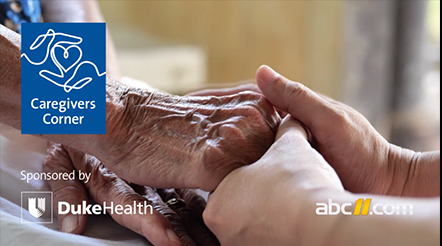Caregivers Corner: Learn about supporting veteran caregivers


Veterans sacrifice greatly to protect the freedom and safety of Americans, often experiencing wounds that extend beyond their time in service. Family caregivers play a pivotal role in helping veterans heal, both physically and emotionally. Around 5.5 million family caregivers in the United States support current or former service members, facing unique challenges not encountered by caregivers for non-veterans.
Veterans may come home with life-altering, combat-related injuries, such as amputations and spinal cord injuries. Caregivers must adapt homes and learn new skills to address physical and emotional implications. Caring for veterans with physical disabilities can be physically demanding, requiring proper techniques and knowledge of available resources. Traumatic brain injuries (TBIs) can lead to cognitive, emotional and physical impairments. These "invisible" injuries can be challenging for family caregivers who learn quickly they must be patient and have a strong support system to navigate these challenges. Mental health issues like PTSD, depression and anxiety are common among veterans and can be challenging for caregivers to manage. Recognizing the signs and providing support is crucial. Navigating the Veterans Health Administration can be overwhelming, adding to caregivers' stress.
Often family caregivers of veterans are younger than what is thought of as a typical family caregiver. Veteran caregivers are often juggling young families and work on top of a loved one who needs their support. Caregivers often face tremendous stress, and additional responsibilities can make it challenging to maintain a work-life balance, leading to feelings of isolation, depression and anxiety. Self-care and community support are essential. Regular exercise, sufficient sleep and breaks from caregiving are vital. Building a network of emotional and practical support can alleviate caregiver stress.
Various resources are available to assist those caring for veterans including: the VA Caregiver Support Program, VA Aid and Attendance benefits, and organizations like the Elizabeth Dole Foundation, the Wounded Warrior Project, Hidden Heroes, The Veterans Consortium Pro Bono Program, and the National Veterans Legal Services Program. Raising awareness and connecting caregivers with valuable resources can help ensure they can continue to support their loved ones with unique needs.
If you are caring for a loved one, hop on over to ABC11's Caregivers Corner to get support from more than 2,500 other people in our community who are faced with similar challenges.




